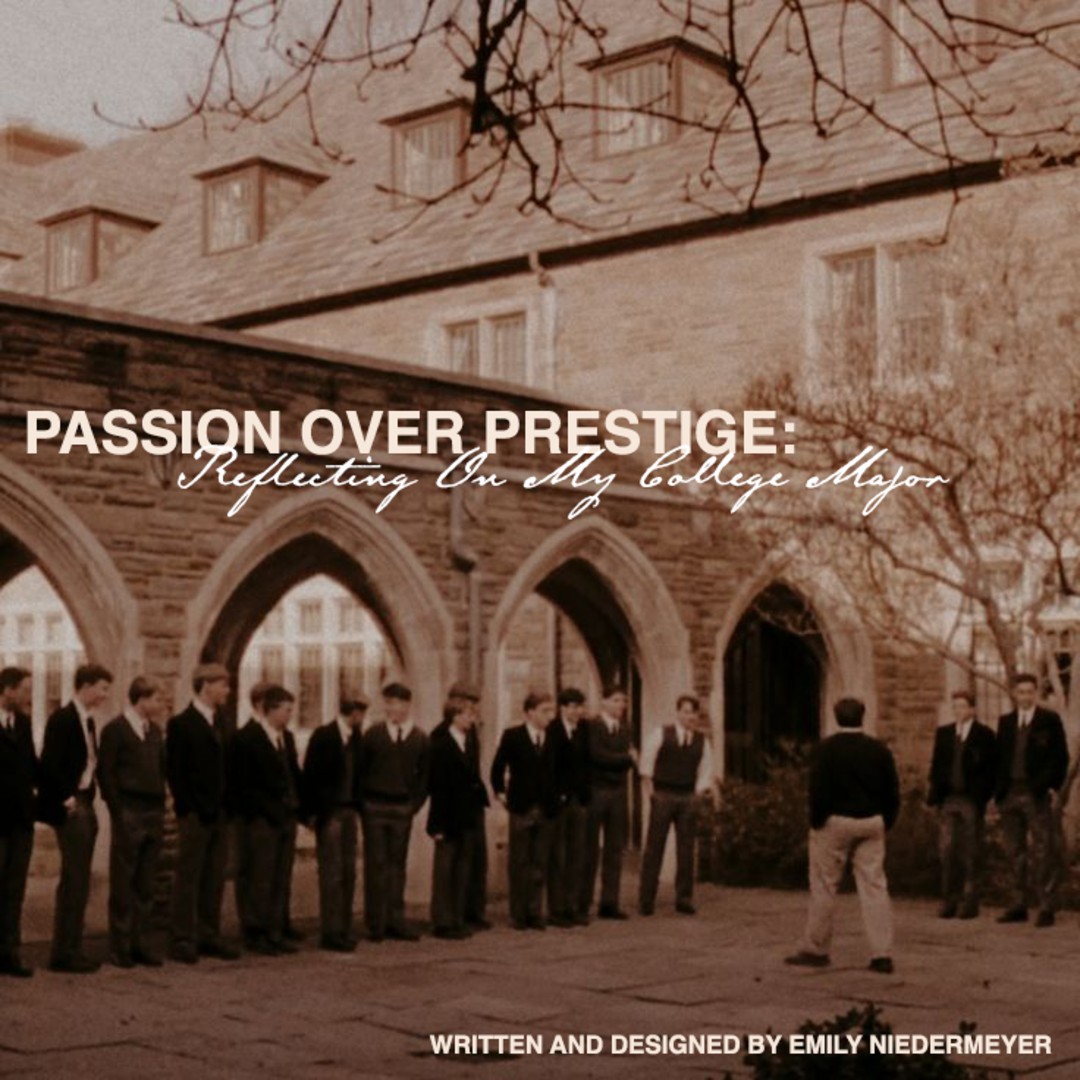
In the film “Dead Poets Society” (1989), starring Robin Williams as an idealistic English teacher, a group of young boys are inspired by the teaching of poetry. Through unorthodox schooling methods and emboldened self-expression, they find that they can challenge the lessons of their upbringing and live truly for themselves, not the expectations imposed on them.
Welton Academy is an elite, all-boys preparatory school in Vermont built on the principles of “Tradition, Discipline, Honor and Excellence.” Professor Keating, played by Williams, teaches the boys that excellence does not need to look nor should look the same for everyone.
At one point in the film, he says, “medicine, law, business, engineering, these are noble pursuits and necessary to sustain life. But poetry, beauty, romance, love, these are what we stay alive for.”
Now, I first watched “Dead Poets Society” in high school, long before I ventured into the “real world” (aka college). Growing up, I was taught to shoot for the stars, so the boys’ (and particularly Neil’s) experience of being suffocated by their parents’ vision of what their lives ought to look like didn’t resonate with me. As I rewatched the movie as an undergraduate student, however, the line stuck with me.
I’m a journalism major, which seemed like a natural path after having a strong interest in writing and current events in high school. It was a discipline I was fascinated by and a career that I could see myself pursuing as a post-graduate. I never questioned my career path — not until about halfway through my college experience when I began to see the stark difference between me and some of my friends. It’s not super obvious; until you look a little harder, you don’t really see the STEM/humanities divide. I started to spend a lot more time comparing the type of assignments I was working on, the amount of time I dedicated to my studies, the jobs I was applying to and the salaries of those jobs. Once I began to notice these things, especially as an insecure and uncertain person going through what some might call a “mid-college crisis,” it’s hard to forget.
I know, I know, comparison is the thief of joy. But as a second year getting a co-op offer for the first time, I felt undervalued compared to the people around me. And I had to be realistic — I knew that this depreciation (specifically in terms of pay) would continue for the rest of my career. So was my education worth it? Was the thousands of dollars of tuition each year going to be rewarding in the end?
So watching back “Dead Poets Society,” I realized that Professor Keating’s words didn’t just apply to a group of prepubescent boys in rural Vermont — its resonance is why the movie is still so beloved today.
It made me realize that I may be entering what some say is a dying industry, but I had the privilege to choose this path, thanks to support from my parents, and I never forget that or take it for granted. I may be in the middle of nowhere for the first few years out of college; I may be earning an insignificant wage; I may be working grueling hours… but it will be worth it, to me.
Journalism is not poetry — it probably won’t be beautiful and there is nothing “romantic” about reporting on the news — but it’s my passion. It’s why I’m involved in multiple extracurriculars; it’s why I stay up into the early hours of the morning; it’s why I work so hard for sometimes little to no reward. It’s what drives me.
And that’s not to say careers in finance or civil engineering or biology aren’t worthwhile; they are, as Keating said, noble pursuits, and without them, the humanities would be fruitless. These fields are full of passionate and industrious and inventive people. But we need both sides of the coin. Realistic pursuits are critical, but no job should overshadow the quest for a beautiful life.
The question is, what will your passion be?
Carpe diem — seize the day.